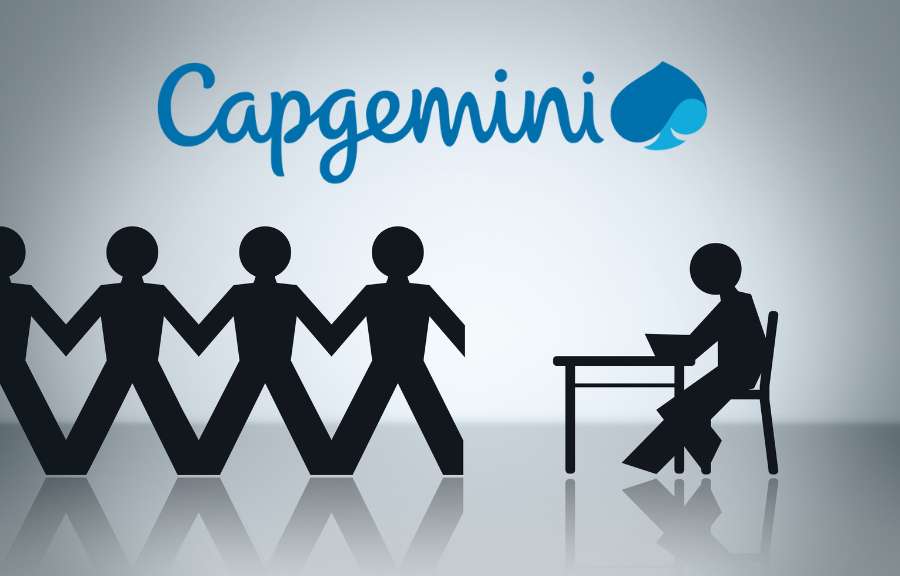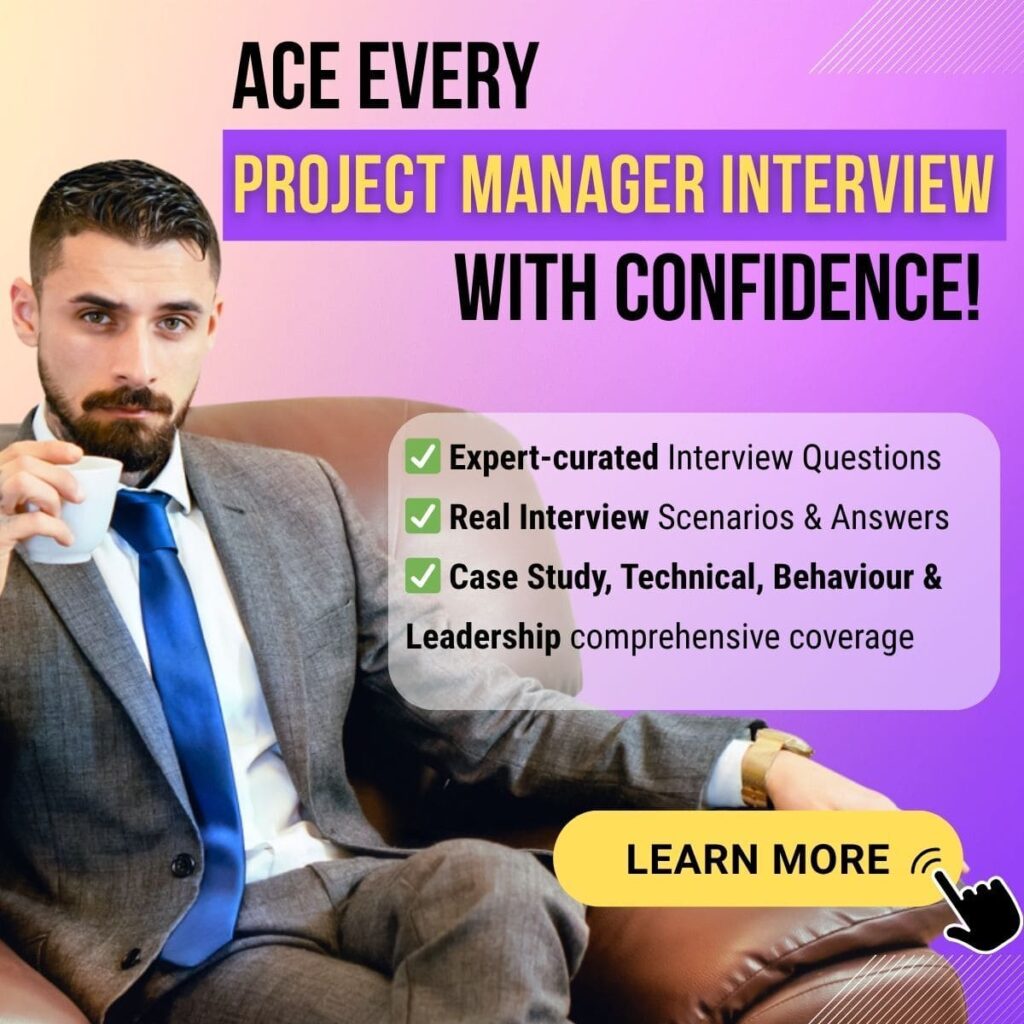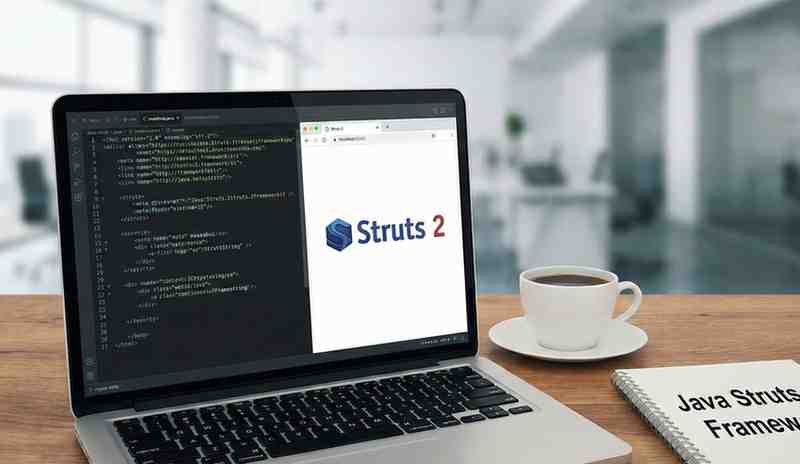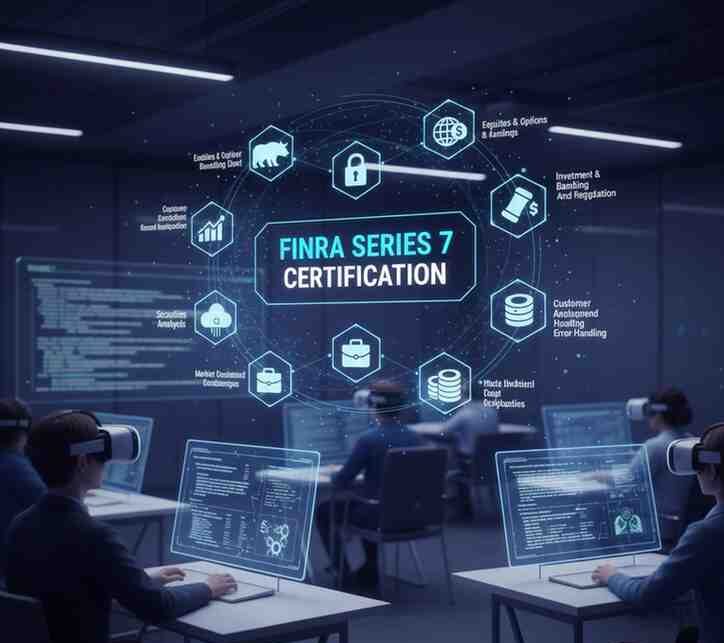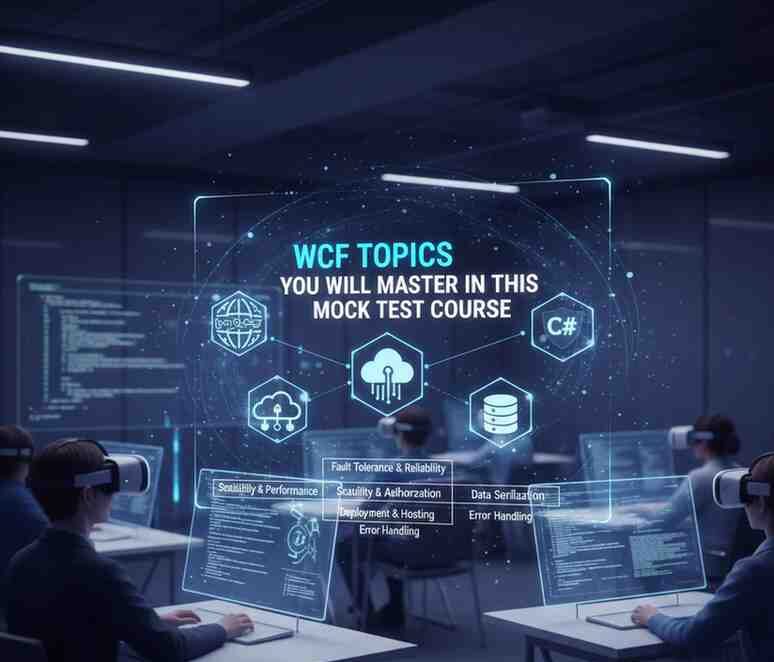Capgemini is one of the largest and most respected IT multinationals in the world, with a workforce of approximately 350,000 employees spanning more than 50 countries. Founded in France, Capgemini has a rich history of innovation, growth, and commitment to its people, and it has maintained its status as a global leader in consulting, technology services, and digital transformation for decades. In this blog – Capgemini Project Manager interview, we will look at the interview process for project managers and kind of questions asked.
🏢 Company Culture at Capgemini
Capgemini’s company culture is often likened to the collaborative spirit of a rugby team, where teamwork is at the core of success. The work environment is known for being energetic, supportive, and dynamic, encouraging employees to grow professionally while fostering strong relationships with colleagues.
Energetic and Collaborative: Capgemini creates an atmosphere where team spirit is essential. Every employee is encouraged to work together, share ideas, and contribute to the company’s larger goals. The culture is dynamic and fast-paced, pushing employees to be their best while providing the support they need.
Guiding Values: Capgemini is driven by its core values, which include Honesty, Boldness, Trust, Freedom, Fun, Modesty, and Team Spirit. These values shape the interactions and decisions within the workplace, promoting an environment where employees can thrive both individually and as part of a collective.
Professional Growth: Employees at Capgemini benefit from a supportive environment that prioritizes personal and professional growth. From mentorship programs to career development opportunities, the company fosters an environment where continuous learning is highly encouraged.
▶Diversity and Inclusion
At the heart of Capgemini’s corporate philosophy is a strong commitment to diversity and inclusion. Capgemini recognizes that diversity brings innovation and drives better results, both internally and externally.
Global Charter for Diversity: Capgemini has implemented a Global Charter for Diversity, a structured initiative designed to create a workplace that is free from discrimination and harassment. This charter helps to foster inclusion by embracing different backgrounds, experiences, and perspectives.
Promoting Inclusive Workspaces: Capgemini’s dedication to inclusivity is evident in its numerous diversity initiatives, which aim to support underrepresented groups in the workplace. The company encourages the development of diverse leadership and provides a platform for women in technology, individuals from various ethnic backgrounds, and people with disabilities to succeed.
Sustainability and Community Engagement: Capgemini extends its inclusivity philosophy beyond the workplace, actively engaging in community development and environmental sustainability. The company’s CSR (corporate social responsibility) programs focus on giving back to the community and minimizing environmental impact.
▶Employee Development and Continuous Learning
Professional development is a cornerstone of Capgemini’s approach to employee engagement. The company offers multiple avenues for career advancement, ensuring that employees have the tools they need to grow within the organization.
Learning Programs: Employees are encouraged to pursue certifications and participate in various training programs. These programs not only enhance individual skill sets but also boost career prospects, allowing employees to stay competitive in a constantly evolving tech landscape.
Fair Performance Management: Capgemini follows a policy of fair performance management, ensuring that career progression is merit-based. Employees are rewarded for their hard work, contributions, and continuous improvement, fostering a positive work culture where growth is based on achievement.
Industry-Relevant Certifications: From PMP (Project Management Professional) to PRINCE2 certifications, Capgemini offers employees the chance to gain globally recognized qualifications that enhance their expertise and leadership capabilities.
▶Work-Life Balance at Capgemini
Capgemini offers a flexible work environment but experiences regarding work-life balance can vary depending on the team and project. While some employees appreciate the flexibility and remote work options, others note that long hours during critical project phases can be demanding.
Mixed Reviews on Work-Life Balance: Some employees report that their experience at Capgemini offers flexibility, such as remote work options and flexible hours. However, during intense project cycles, others note longer hours that may challenge work-life balance.
Supportive Teams: Regardless of the workload, employees often emphasize the supportive nature of their teams, highlighting that teamwork and collaboration help them manage the more demanding phases of project life cycles.
Capgemini’s Approach to Project Management
Capgemini’s project management style is structured yet flexible, designed to meet the complex and dynamic needs of clients. The company blends traditional and modern methodologies to ensure that projects are delivered on time, within scope, and to the highest quality standards.
Collaboration and Adaptability: Project Managers at Capgemini are expected to lead cross-functional teams effectively while adapting to changing client needs and technological advancements. This requires balancing technical expertise with strong leadership and communication skills.
Training and Development: Capgemini provides ample learning opportunities for its employees, including access to Capgemini University, where professionals can receive training on Agile methodologies, Waterfall frameworks, and the latest project management tools. This continuous learning ensures that project managers stay ahead of industry trends and can apply the best practices in their work.
Client-Centric Approach: Projects at Capgemini are always customer-focused, ensuring that every deliverable aligns with the client’s goals. Project Managers are trained to understand client needs, manage expectations, and provide high-quality solutions that add value.
Salary of Project Managers at various experience levels
| Experience Level | India (INR) | USA (USD) | Canada (CAD) | Europe (EUR) | Australia (AUD) |
| 8-10 years | ₹19,00,000 – ₹25,00,000* | $97,000 – $151,000 | $102,114 | £46,423** | A$143,500 |
| 11-13 years | ₹21,50,000* | $97,000 – $151,000 | $102,114** | £46,423*** | A$143,500 |
| 14-16 years | ₹25,00,000 – ₹36,00,000* | $120,000 – $180,000 | $120,000 – $160,000 | €70,000 – €90,000 | A$150,000 |
Profile Review & Recommendation
Expert-Driven Profile Review &
Recommendations

Let our expert look into your CV, Cover Letter, Naukri & LinkedIn Profile to turn your profile into the top 1% of professional profiles.
INR 1,999
- Naukri Profile Review & Recommendations
- Resume Review and Expert Recommendations
- LinkedIn Profile Review & Recommendations
- Cover Letter Templates Download
- Latest Resume Templates Download
- Personalized, tailored feedback
- ETA: 3- 5 Days
Self-Service Profile
Optimization

Access expert-curated guidelines, sample reviewed files, & step-by-step instructions to optimize your CV, Cover Letter, Naukri & LinkedIn Profile.
INR 499
- Guidelines for Profile Optimization (Resume, Naukri, and LinkedIn)
- Access to Sample Reviewed Files for inspiration
- Step-by-Step Instructions to reframe your profile
- Cover Letter Templates Download
- Latest Resume Templates Download
- Immediate access to the files
Capgemini Project Managers Role
▶ Responsibilities
- As part of the Capgemini project management team, your primary role would be to take end-to-end bottom line responsibility for a Project.
- You will lead the proposal preparation, review the project estimations, capture inputs from key stakeholders to position Capgemini suitably in order to seal the deal.
- You will schedule assignments, monitor, review and report project status regularly in order to manage project risks and ensure successful project delivery and implementation.
- You will also coach and create a vision for the team, provide subject matter training for your focus areas, motivate and inspire team members through effective and timely feedback and recognition for high performance.
- You would be a key contributor in creating thought leadership within the area of technology specialization and in compliance with guidelines, policies and norms of Capgemini .
▶ Requirements and skills
- Great educational background, preferably in the fields of computer science or engineering for technical project managers
- Proven working experience as a project administrator in the information technology sector
- Solid technical background, with understanding or hands-on experience in software development and web technologies
- Project Management fundamentals
- Project Lifecycles on development & maintenance
- projects, estimation methodologies, quality processes.
- Knowledge of one or more programming languages;
- knowledge of architecture frameworks, and design principles; ability to comprehend & manage technology, performance engineering.
- Domain – Basic domain knowledge in order to understand the business requirements / functionality.
- Ability to perform project planning and scheduling, manage tasks and coordinate project resources to meet objectives and timelines
- Ability to work with business and technology subject matter experts to assess requirements, define scope, create estimates, and produce project charters
- Good understanding of SDLC and agile methodologies is a pre-requisite
- Awareness of latest technologies and trends
- Logical thinking and problem solving skills along with an ability to collaborate
- Excellent client-facing and internal communication skills
- Excellent written and verbal communication skills
- Solid organizational skills including attention to detail and multi-tasking skills
- Strong working knowledge of Microsoft Office
- PMP / PRINCE II certification is a plus
Capgemini Project Managers Interview Process
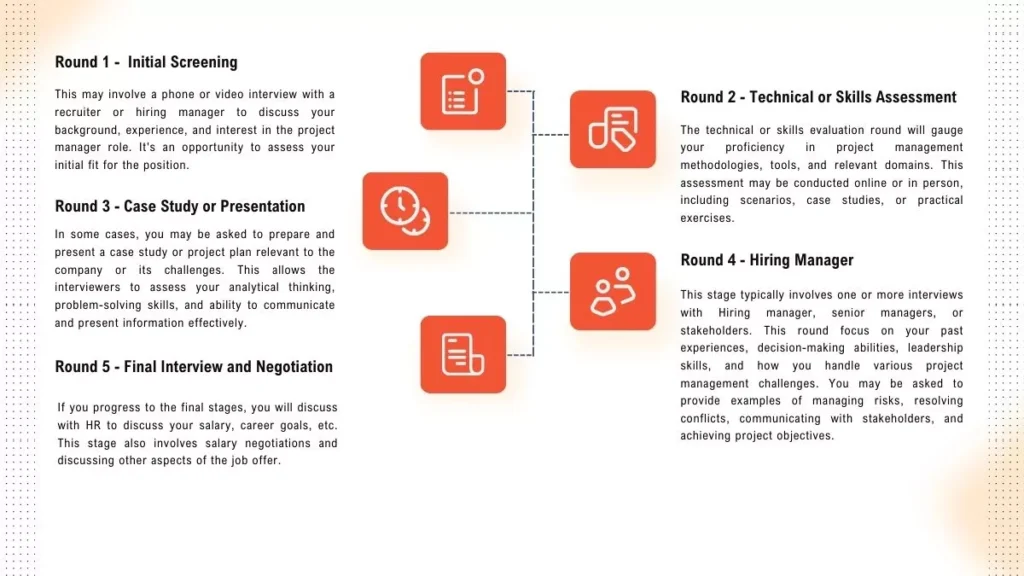
Experience and Difficulty

source:glassdoor
Capgemini Project Manager Interview Questions
📝 General and Background Questions
These questions aim to understand your professional background, your experience in the field, and your understanding of the project management role.
- What is your overall experience in technology and job roles you’ve held?
- Describe your project management experience.
- What are the first three things you would do as a project manager?
- Tell me about yourself and your experience.
- Describe related work experience and your introduction to project management.
- What are your day-to-day responsibilities in your current role?
💡 Tip: Focus on your previous roles, specifically your experience managing teams, delivering projects on time, and dealing with clients. Highlight how your previous experience makes you a suitable candidate for the role.
⚙️ Technical and Role-Specific Knowledge
Capgemini places significant importance on technical expertise, especially with tools and processes like Informatica Power Center, Spring Boot, Java, and Angular.
- Scenario-based questions related to Informatica Power Center.
- What is SOA and SOA governance?
- What is the SPFx package.json?
- Spring Boot, Java, and Hibernate-specific questions.
- What development work do you do in your current company?
- What PM technologies have you worked with?
💡 Tip: Be ready to dive into your technical knowledge and experience with specific platforms or tools. If your role involved technical project management, explain how you’ve applied these technologies to deliver successful projects.
📈 Project Management Questions
These questions assess your understanding of project management principles and your practical experience managing teams and processes.
- How does end-to-end project management work?
- What is Scope Creep, and how do you handle it?
- What are the project planning phase steps?
- How do you analyze risks in project management, and why is it important?
- How do you manage project budgets?
- What are the biggest challenges you’ve faced in your projects?
- How would you handle a situation where 10 days are left before the go-live, and a big issue arises?
- What is your experience with Agile, CR, and other processes?
- Describe a practical scenario where you had to handle production and delivery.
💡 Tip: Use real-life examples to illustrate your project management skills, particularly when discussing challenges like scope creep and risk management. Highlight your ability to stay on budget, keep timelines on track, and work with stakeholders effectively.
🤝 Customer Facing and Team Management Questions
Managing client relationships and handling team dynamics are key elements of a project manager’s role at Capgemini.
- What is your customer-facing experience?
- How do you manage difficult clients?
- How do you handle conflict within your team, and how have you resolved it?
- Have you had any conflict with colleagues, and how did you resolve it?
- How do you manage a diverse team of members with different expertise?
- How do you motivate team members when someone is on leave or unavailable?
💡 Tip: Emphasize your leadership and team management skills, explaining how you maintain team cohesion, resolve conflicts, and manage client relationships. Share examples of how you navigated difficult client conversations or challenges within your team.
🧠 Behavioral and Situational Questions
These questions are designed to test how you would react to real-world project management situations and your approach to decision-making under pressure.
- Tell me about a challenging project you managed.
- How do you handle working with difficult people?
- What do you do when customers are tough on a daily basis?
- What are your strengths and weaknesses in managing projects?
- What would you do if you faced a major change in project scope but couldn’t adjust time or quality?
- Describe a time when you had to resolve an issue quickly without the ability to adjust major project variables.
💡 Tip: Use the STAR method (Situation, Task, Action, Result) to answer behavioral questions, and make sure to focus on outcomes. Employers at Capgemini want to see how you solve problems effectively under pressure and how your decisions positively impacted the project.
📊 Salary, Benefits, and Role-Specific Questions
Capgemini interviewers may also ask about your expectations and motivations to understand if your goals align with the company’s offerings.
- What are your salary expectations?
- What is your notice period?
- Why do you want to work at Capgemini?
- What are your career aspirations, and where do you see yourself in a year?
- How would you contribute to Capgemini’s success?
- Why should we hire you over other candidates?
- What would your value addition be to our team?
💡 Tip: Be prepared to discuss your salary expectations based on market research. Show how your goals align with Capgemini’s growth and mission, and emphasize why you are the best fit for the role.
Conclusion: Capgemini Project Manager Interview Questions
Capgemini’s interview process for project managers covers a wide spectrum of topics, from your technical knowledge and project management expertise to how well you handle client relationships, team dynamics, and conflict resolution. By preparing thoroughly for each category of questions—technical, situational, and behavioral—you can confidently demonstrate your qualifications and suitability for the role.
Use real-world examples, highlight your ability to manage complex projects, and be ready to discuss how you’ve navigated challenges in the past. With a solid understanding of Capgemini’s core values and project management approach, you’ll be well-prepared to succeed in your interview.

